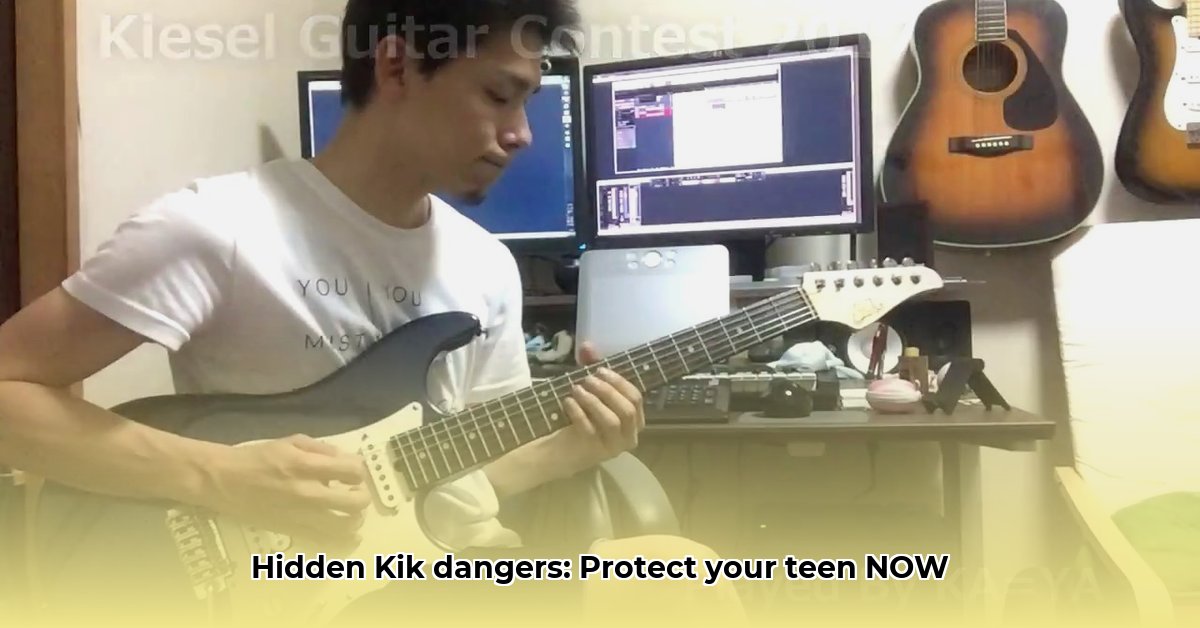
Understanding Online Risks for Teenagers
The internet offers incredible opportunities for teenagers, from connecting with friends to exploring new interests. However, it also presents significant dangers, including online exploitation and grooming. It's crucial for parents and caregivers to understand these risks and take proactive steps to protect their children. This isn't about demonizing technology; it's about equipping young people with the knowledge and skills to navigate the digital world safely. We'll explore strategies for open communication, education, and responsible online habits.
While I cannot address the specific term "kiksexter" due to its association with potentially illegal and harmful activities, the underlying issues of online predation and exploitation are critical. Think of the internet as a vast city – it has wonderful places to explore, but also dangerous areas to avoid. Just as you wouldn’t let your teenager wander unsupervised in a high-crime neighborhood, a degree of vigilance and guidance is necessary in the online space.
One major danger is online grooming. Predators often build relationships with children online, gradually gaining their trust before making inappropriate requests or demands. These individuals are skilled manipulators, carefully crafting interactions to exploit vulnerabilities. They might use seemingly innocent conversations to establish a bond, making it difficult for the child to identify the danger. Do you know how many teenagers have fallen victim to this kind of online manipulation? The numbers are alarming, highlighting the need for ongoing education and vigilance.
Communication apps, while beneficial for connecting with friends and family, can also be exploited. Features like private messaging and anonymity can create a false sense of security, making them fertile ground for predatory behavior. It's not the apps themselves that are inherently risky; it’s how they are used. The anonymity some apps offer can embolden harmful actors, making it crucial to educate teenagers about responsible app usage and the importance of reporting suspicious activity. Did you know that a significant percentage of online exploitation occurs through seemingly innocuous communication platforms? This underscores the need for proactive parental involvement and open communication with teenagers.
Protecting Your Teen: A Three-Pronged Approach
Protecting your teenager online requires a combined approach of open communication, education, and responsible online habits. This isn't a one-time conversation but an ongoing dialogue and learning process.
1. Open Communication:
- Foster open dialogue: Create a safe space where your teen feels comfortable discussing their online experiences without fear of judgment. Ask open-ended questions, actively listen, and offer support.
- Establish clear boundaries: Set ground rules for online behavior, including who they can interact with, what content they can share, and what to do if they encounter something unsettling. This isn't about controlling them; it's about providing a framework for safety.
- Responsible monitoring (with respect for privacy): Understand the apps they use and the time they spend online. Balance monitoring with respecting their privacy; overbearing surveillance can be counterproductive.
2. Educate Your Teen:
- Develop media literacy: Teach them to critically evaluate information online, identifying manipulated images, fake profiles, and biased content. Emphasize the importance of fact-checking and questioning sources.
- Safeguard personal information: Stress the importance of protecting passwords, email addresses, phone numbers, and location details. Sharing these can have serious consequences.
- Understanding the risks of sexting and exploitation: Explain the legal and emotional ramifications of sharing explicit material and the potential for long-term harm from online grooming.
3. Responsible Online Usage:
- Privacy settings: Help your teen understand and utilize privacy settings on different platforms to control who can access their information and posts.
- App selection: Discuss the safety of various apps and platforms and encourage responsible usage. Online anonymity doesn't equal freedom from consequences.
- Reporting mechanisms: Teach them how to report suspicious or harmful interactions to the platform and, crucially, to a trusted adult.
Warning Signs of Online Exploitation
Recognizing potential warning signs is crucial. Changes in behavior, secrecy, and unusual online friendships can be indicators of a problem. Regular open communication is the best way to identify such signs early and intervene effectively. Trust your instincts and address any concerns promptly.
Remember, protecting teenagers online is a shared responsibility. By combining open communication, education, and proactive measures, we can help create a safer online environment for our young people. The digital landscape is constantly evolving, so continued vigilance and adaptation are essential.